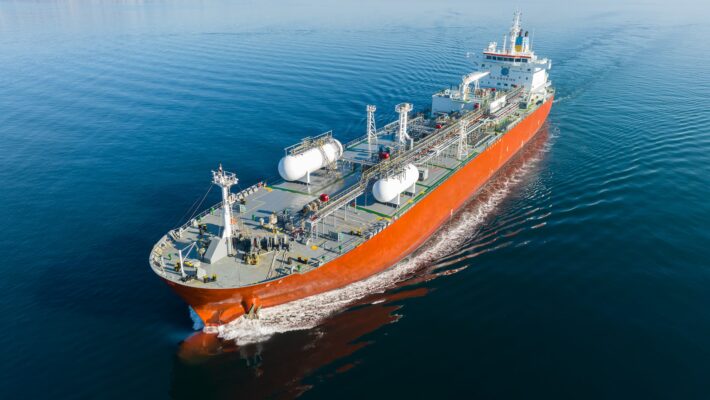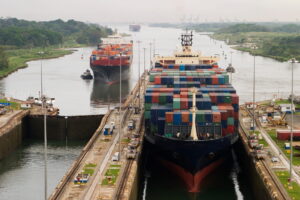In February 2022, Russia invaded Ukraine, accelerating a war between the two countries that began in 2014. One of the consequences was that shipping fuel costs rose to unprecedented levels. Global market crude oil prices rose from $75 in January 2022 to over $110 per barrel by March 2022. Fast forward to April 2023, and the shipping fuel costs have fallen 46% from their peak in 2022. A standard oil used by commercial vessels to ship freight, VSLFO, has similarly seen a decrease in cost. Very low sulfur oil (VSLFO) was $608 per ton in late March 2023 compared to its all-time high of $1,125.50 in June 2022.
High sulfur fuel oil (HSFO) has also seen a 38% decline from its peak in May 2022. The decrease in HSFO has been incredibly beneficial for containerships with built-in scrubbers compared to vessels that use VSLFO. Scrubbers are gas cleaning systems used in ships for removing harmful and polluting particles from exhaust steams. Since HSFO costs are lower than VLSFO, ships with HSFO can have higher net spot earnings and time-charter rates. A VLSFO-HSFO spread reported a difference of $420.5 per ton in July 2022 compared to $132 registered in February 2023. The narrowing of the spread indicates that VLSFO prices are decreasing faster than HSFO.
Green Methanol and LNG Costs Still High
While fuel prices have decreased over the last year, Liquid Natural Gas (LNG) and green methanol remained expensive. This is unfavorable to carriers and shippers pushing to make shipping oil more eco-friendly. Last Thursday, LNG was reportedly 62% more costly than HSFO. Despite the LNG price following the trend of lowering, it still could be too high for shippers to consider. Vessel owners and operators are not the ones paying for costly oil; shippers are. While LNG costs more than regular oil, it is currently cheaper than green methanol, which can be 350% more expensive.
The reason why green methanol is costly compared to other oils is due to limited technologies and feedstock. Feedstock is the raw material used to produce a finished product, like green methanol from renewable sources. Despite this, container shipping companies are pushing for cleaner oil and ordering methanol-fueled vessels. The issue is that many customers may be unwilling to pay the high premium. There is a belief that if these fuels are to become popular, there should be the right government incentives. Government support for the development of green fuels like methanol is also necessary.
Prices for several different fuels are close to half last year’s peak and may decrease further in the second quarter. This means that shippers can benefit from saving if they decide on shipping now or in the near future. Greater savings can be made if they find a logistics company to do the process for them. If you plan on moving cargo internationally, contact A1 worldwide logistics at 305-821-8995 or info@a1wwl.com to get started. We are in touch with many carriers with the best rates for transporting your goods. A1WWL also provides warehousing and customs clearance for freight entering the U.S.





